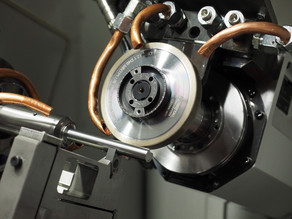Economical Reconditioning of Precision Drilling Tools with a Focus on the Cutting Edge Microstructure, Taking into Account Various Coating and Decoating Strategies
Cost savings in the production process are crucial for companies to maintain and improve their competitiveness in the face of drastic price increases for raw materials, their shortage and problematic supply chains. To increase productivity while maintaining the required component quality, work processes must be organised more efficiently. The efficiency of machining processes depends largely on the performance of the tools used. This results in ever new requirements for the tools, with the entire process chain for their manufacture coming into focus. Furthermore, the individual manufacturing processes and steps must be closely harmonised.
In previous research projects, using the example of solid carbide twist drills and single-lip drills as well as multi-bladed reamers, it was possible to design the main and secondary cutting edge areas and the rake faces of the tool types under consideration, resulting in significant increases in tool life. In order to extend the service life of cutting tools, it is necessary to attach even greater importance than before to the economical reconditioning of tools with the aim of optimising resources and costs. Effectively utilisable combinations of decoating, regrinding and cleaning processes as well as the preparation of cutting edges and the recoating of tools must be considered as components of holistic reconditioning (reprocessing).
The focus of the project is therefore primarily on the economic reconditioning of precision tools with particular consideration of the cutting edge microstructure and various coating and decoating strategies. In particular, the interactions between the different process steps for reconditioning of precision drilling tools will be analysed.





![[Translate to English:] [Translate to English:]](/storages/isf-mb/_processed_/4/8/csm_Schleifscheiben_8bb5d31229.jpg)